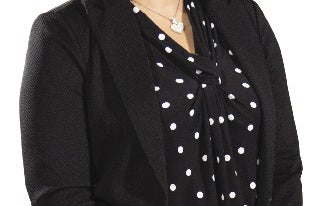How do we practice civil discourse, empathy, and stand up and stand out when it’s uncomfortable?
Get Instant Access to This Article
Subscribe to Worcester Business Journal and get immediate access to all of our subscriber-only content and much more.
- Critical Central Massachusetts business news updated daily.
- Immediate access to all subscriber-only content on our website.
- Bi-weekly print or digital editions of our award-winning publication.
- Special bonus issues like the WBJ Book of Lists.
- Exclusive ticket prize draws for our in-person events.
Click here to purchase a paywall bypass link for this article.
I’ve written a lot about being an upstander, and I think it’s important to keep the conversation going, especially as we continue to be challenged in the social-political environments we navigate locally, nationally, and globally. How do we practice civil discourse, empathy, and stand up and stand out when it’s uncomfortable? What will it take for us to speak up for someone else, for a colleague at our workplace who we are not connected to? For a stranger? For someone we seemingly have nothing in common with?
It’s easier to stand up for people we have things in common with, for people who look like us and act like us, because we are more empathetic to our own likeness as ethnocentric beings. Will we speak up when a person is stereotyped and mistreated on the airplane because of the color of their skin? When they are spoken to and treated differently at the bank, in the supermarket, at the golf course, in a restaurant? Every adult in America has witnessed some type of bigotry, and most people of color have experienced it personally. Our silence to it is collusion; it’s deafening.
I’m a light-complexioned person of color with lots of privileges, and I have witnessed countless racism towards others. I have experienced it personally, too. Too often we downplay these things. Maybe we ask ourselves, did I hear that right? Am I overreacting? Am I the only one who saw that? No, you’re not alone, and too often the bystander effect sets in where nobody says or does anything because we all think someone else will.
One time, I was shopping in an upscale clothing store waiting to be helped, not followed, but I certainly mistreated with poor service, as I was basically ignored even while standing in line to check out. A white woman directly asked the retail representative in my presence if I had been helped, because she was acknowledged by the representative, even though I had been waiting longer and was in line in front of her.
This is a small gesture, but nonetheless one of an upstander. Often, the experiences of people of color are downplayed, and we are gaslighted pertaining to our accusations regarding racism and our personal experiences with it. Too many people have said to me things like, “Maybe you are being too sensitive,” or “Maybe they didn’t mean it like that,” or “Maybe they thought something else.” I’ve often tried to fill in that gap, answering what else might have been meant or thought.
In the minds of many who do not experience it day to day, racism consists of egregious acts of violence or abuse. But that is only part of what many people of color experience day to day. It’s draining, even demoralizing. In the words of Black geoscientist Martha Gilmore, it is a “persistent current in everyday interactions” – of belittlement, of denial of opportunity, of feeling that you do not belong. These are persistent themes for people of color in life, including at work.
I’ve written about my own voice, which I regret was shallow or silent too often as a young person, especially when it came to standing up for myself. Too many times I heard a racist comment or microaggression, and I didn’t know how to react, so I just kind of froze and went inside myself and toiled with it in silence. Over time, these transgressions began to eat me up; they made me sad and angry and anxious about what I might hear next.
There is so much advice I would give to people about managing these scenarios, but the greatest advice I will give is to those who support and manage others at work, and especially to those who manage, support and/or are role models to kids (this covers a lot of us); when you hear or see something racist or bigoted, stand up against it, say something.
Kids want to feel safe, and they are looking to us to uphold their safe spaces, as the adults, the ones with power. When we, parents, and uncles and aunties, and neighbors and bosses and teachers and CEOs, and high-profile entertainers, etc., do not set that upstander precedent, our kids suffer. They are looking to us to keep them safe and protect humanity in themselves. No child is born a racist or a bigot. It is learned.
Bonnie J. Walker, a Worcester resident, is principal diversity & inclusion officer at MIT’s Lincoln Laboratory in Lexington.

